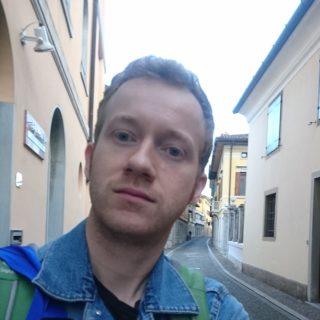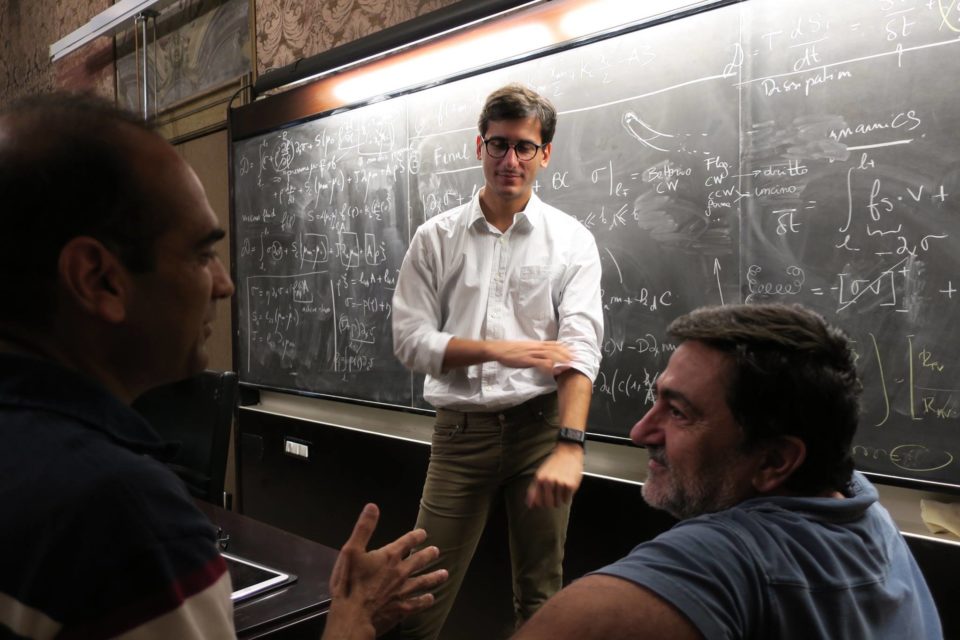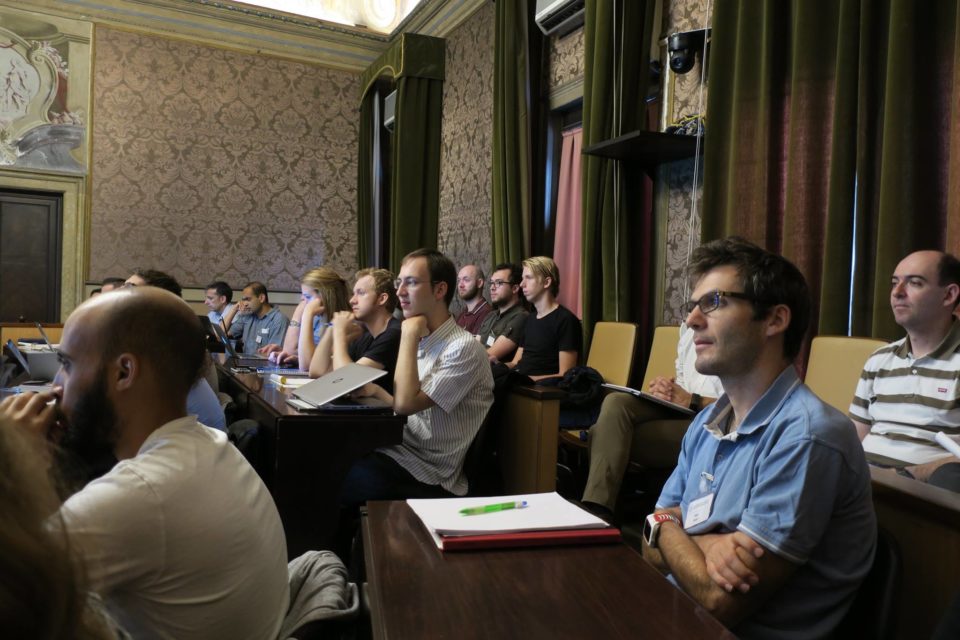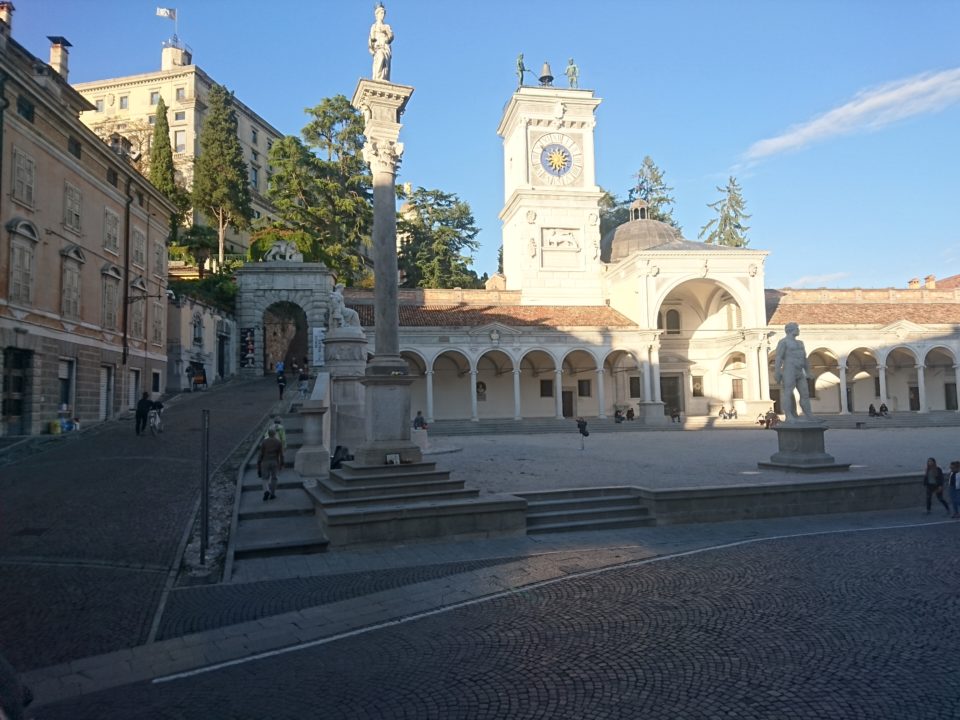
Martin Frauenlob (from Austria in Europe)
生命科学専攻・博士後期課程・3年生(当時)
Transdisciplinary Life Science Course, DC 3 (at the time)
2018/9/24~2018/9/28, Italy, Udine
Dear colleagues, I was working on the interaction between stem cells and cell culture materials for more than 2 years at Hokkaido University. Still, I did not yet feel confident in the things I knew about this topic. Therefore, I was trying to find a short intensive course on the named topic to strengthen my knowledge. I also wanted to find out what leading scientists think about the further development of the scene and what important questions are there to answer. Different to conferences in summer schools the environment is much more casual, and it is easier to talk to the presenters since they guide you through multiple lectures. They are also more focused on teaching you something rather than just presenting their work, as they would maybe do at conferences. With these expectations I applied for this summer course and I went to Udine, a city in northern Italy close to the Alps.

The seminar was located near the historical city center of Udine in the beautifully preserved and restored building “Palazzo Mangilli-del Torso”, which also is the CISM administration office and was kindly provided by the city of Udine. After the registration and an orientation and welcome speech by Prof. De Simone the introductory lecture from Prof. Discher was held. Due to the efforts of the research group around him mechanobiology got to where it is now. His lecture was focused on how mechanobiology developed in the last decade and his laboratories publication “Matrix Elasticity Directs Stem Cell Lineage Specification”, which is one of the most impactful ones in this field with more than 6000 citations. On the first day however, the jetlag forced me to bed immediately after last session of this day was over.

For one week we had a tight schedule with more than 30 session from 9 internationally renowned lecturers. At lunch breaks we had viable discussion in either small cafes or the central cafeteria in Udine’s impressive old town. Later in the week other participants and I had the opportunity to discovery the lively town and we formed strong bonds. While having pizza for dinner we shared our experiences and struggles as PhD students. In the lectures we got a good overview on, how the field will develop in the future and what kind of trends in this research topic are most likely impactful. Second, we learned what the difficulties are when you go from an experimental result to a functioning cell model. Highly advantageous for me was that all the presented slides were downloadable, giving me a huge library of publications approved by great scientists in the field of cell migration modeling. Means, whenever I try to find related literature I already have proper reference material which helps to identify reasonable new publications.

Looking back, many of the lectures were hard to follow but after discussion with other participants or lecturers the sessions content got more and more clear. It was important for me to realize, to just ask a question even if it feels awkward. With that I want to give the advice to others how are in the same position as I was. Just be courageous enough to ask! Because if you don’t ask you will anyways not understand it and you will waste just time. Especially, you often will realize that the other students might also do not understand it well. The journey to this summer school was a very important experience for me. Not only did I learn a lot, this short travel got me out of my everyday life in the laboratory. It helped to clear my mind and made me approach my doctoral course project from a different angle. I recommend every PhD student to attend a summer school or summer course at least once.
Finally, I want to thank the Faculty of Advanced Life Science for the funding to travel abroad, because without that funding I wouldn´t have had the opportunity to make this great experience.
Best Regards,
Martin Frauenlob